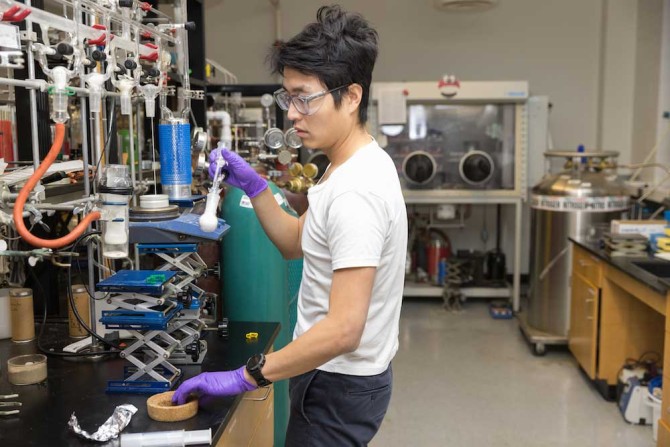News directly from Cornell's colleges and centers
Causing reactions: Klarman Fellow develops new catalysts
By Kate Blackwood
Chemical reactions are happening around us all the time – it’s obvious when you think about it, but how many of us do when we start a car, cook an egg, or fertilize the lawn?
Richard Kong, a specialist in chemical catalysis, thinks about chemical reactions all the time. In his work as a “professional mixer,” as he puts it, he’s not just interested in reactions that happen on their own, but in sparking new ones.
As a Klarman Postdoctoral Fellow in chemistry and chemical biology in the College of Arts and Sciences, Kong is working to develop catalysts to guide chemical reactions toward desired outcomes, creating benign or even value-added products, including some that could have a positive effect on the environment.
“Quite a few chemical reactions happen without help,” Kong said, citing the carbon dioxide released when a car burns fossil fuels. “But more challenging and difficult chemical reactions don’t happen automatically. This is where chemical catalysis steps in.”
Kong’s approach fits right in with the Lancaster Lab’s “discovery-oriented” approach, said Kyle Lancaster, professor of chemistry and chemical biology (A&S) and Kong’s faculty host. “Richard had the idea to advance his chemistry with tin, which was never in my playbook,” Lancaster said. “He’s got catalysts that selectively turn carbon dioxide, which gets a lot of negative press, into more valuable things.”
Read the full story on the College of Arts and Sciences website.
Media Contact
Get Cornell news delivered right to your inbox.
Subscribe

